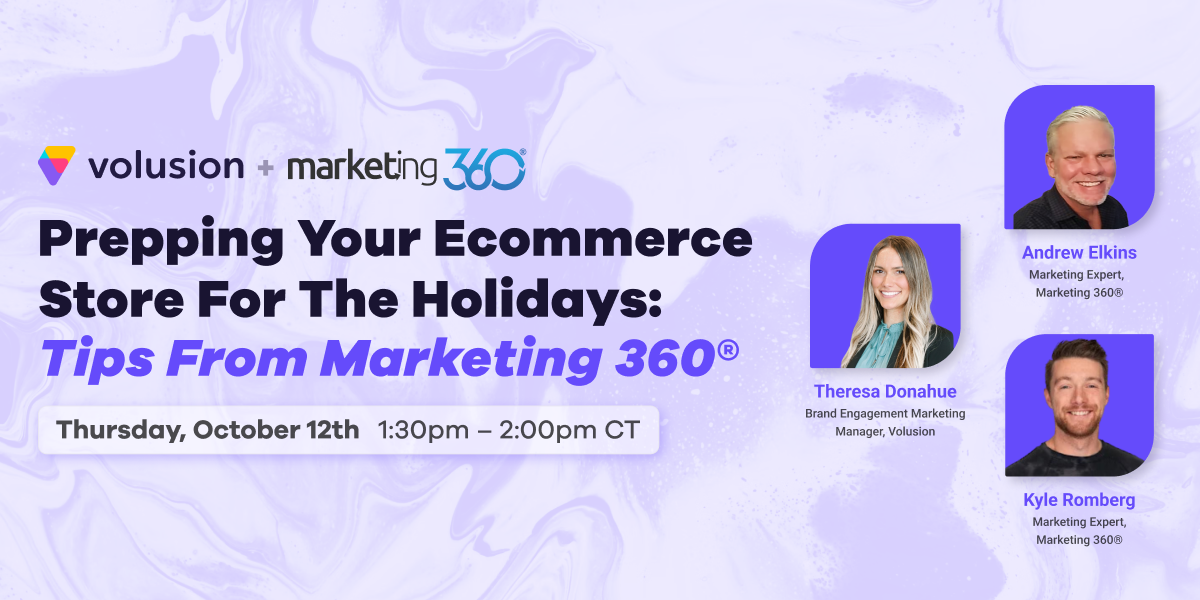
Do last-minute holiday to-dos have you feeling like time is speeding up? Us too. As we run headlong into a new year, ecommerce entrepreneurs are left reflecting on their store’s past performances and applying lessons learned to their upcoming business strategies.
But as the saying goes: life can only be understood looking backwards, and lived going forward.
That’s why we’ve consulted our crystal ball (the internet) to identify a few key changes in technology, consumer expectations, advertising, and money that are very likely to cross your path in 2019.
Ahead are ten business trends ecommerce owners need to act on to make 2019 their best sales year to date.
1. Increased demands for trustworthy content.
Business insider predicts that 30% of browsers will employ some form of ad blocker by year’s end. Depending on how successful your ad campaigns have been to date, you could be entering the New Year with 30% less web traffic.
At the same time, consumers are craving trustworthy content. Branded and editorial sites join the ranks of peer recommendations and reviews (more on this in a bit) as some of the most effective ways to generate a loyal, trusting customer base.
To review, you can make your content marketing cutting-edge by:
- Staying fresh and consistent. This means looking back at articles that have performed well over the past year and either updating them or creating more around a similar topic.
- Offering expertise about your products or industry. Aim to help be a problems solver or gatekeeper between where they are and where they want to be.
- Sharing now, selling later. Create with the intent to simply help. The less you’re trying to “sell them,” the more receptive they’ll be to your messaging.
- Diversifying your deliverables. Not every buyer is at the same stage of the sales cycle, and they’re rarely all on the same platforms at the same time. Keep this in mind as you’re developing your content calendars and posting content.
2. Reviews are likely to rise in importance.
It’s no secret, or surprise, that the overwhelming majority of customers look to reviews before making a purchase. This goes double for online stores that rely solely on their internet presence to sell products.
But what about newer online stores that don’t yet have the sales or reviews to back up their promises? Well, turns out no reviews are almost as hurtful as bad reviews. According to a Fan and Fuel study, 92% of consumers will hesitate to make a purchase if there are no customer reviews.
Many of us have experienced this phenomenon when booking an Airbnb. Without the praise or direction of peers who’ve stayed before, we’re often nervous about walking into a situation blind.
This growing importance will likely reward companies with successful reviews in the form of increased business. We wouldn’t be surprised to see companies create their own review forums and center marketing campaigns around highlighting positive opinions.
3. Personalized marketing is the new norm.
Even if content and reviews will steadily overshadow online advertising, the truth is it probably isn’t going anywhere for awhile. In all actuality, ads will likely continue to become increasingly more personalized.
It’ll filter down to the smallest detail. Think: non-stock images, campaigns that reference past purchases, eerily specific calls to action, etc.
Facebook has already anticipated and perhaps reinforced this trend with a new tool called Creative Compass. It’ll help you get detailed data about how effective your ad was or wasn’t, and allow you to see what action was taken after your target audience saw it.
They’ll even weigh your campaign based on some mission critical measures, like:
- Noticeability
- Brand association
- Brand fit
- Message comprehension
- Believability
- Information content
- Emotional reward
- Call to action
4. Say goodbye to G+ and hello to other forms of local search.
Though the low utilization and underperformance of Google's big social network comes as no surprise, the real reason for it getting the ax might be that some 500,000 accounts were compromised in a data leak that was well hidden and quietly announced.
And while Google insists that your SEO shouldn’t be impacted once the doors are officially shuttered, we’d like to remind you that local search is still a huge boon for small business.
As such, investing in some of the newer local search communities that are springing up to take its place is a good idea. Word on the street is many of these communities will be absorbed to Facebook. For now, you can join the first three G+ groups on this list of twenty local SEO forums to see where they move and check out some others outlined.
5. New technologies are taking over.
When it comes to B2B buyers, millennials make up a large majority. No wonder so much ecommerce technology is springing up to meet their demands.
We recently covered five of the tech trends expected to permeate the B2B ecommerce landscape in 2019, including:
- Omnichannel Ecommerce: meaning from mobile app to brick-and-mortar, customers should be able to expect a consistent experience no matter the channel. The more seamless the shopping experience and widely available the options to buy, the better.
- Chatbots: a millennial is many times more likely to use the internet than pick up the phone if given the option. Enter the meteoric rise of chatbots. By some predictions, annual spend on chatbots will soon surpass app development in more than 50% of companies.
- Augmented Reality: AR could be the latest and greatest way to showcase interactive products or catalogs online. IKEA and Amazon are already on board, and it’s only a matter of time before everyone else jumps on the bandwagon.
- Virtual Reality: VR is an immersive digital experience that online retailers are using to create entire shopping simulations for customers.
- Voice Search and Shopping: it’s like asking Siri or Alexa to do the shopping for you. In three years or less it could be worth $40 billion, so best to be an early adopter.
6. Podcast marketing plans border on necessity.
Differentiating your brand is difficult. Personalizing it is necessary. With a company podcast, you can tackle both at once.
As with any content marketing initiative, no podcast marketing strategy is complete without a plan for getting it out into the world.
Perhaps not surprisingly, automation efforts are the clear contender here. Sites like Zaiper and IFTTT pair with your RSS feed to make sure your voice rings out across your many social networks so you can use your podcasts to increase engagement.
7. The remote worker is on the rise.
As an ecommerce store owner, you may already be among the remote, work from home, or digital nomad brethren. It’s a new way to work that is helping professionals of all varieties achieve a work-life balance that lets them follow their dreams while earning a living.
This also means business owners have to be more diligent about collaborating and communicating with their staff.
No doubt happier employees make for better customer service reps, and in turn happier customers. Be mindful of your current communication plan and consider whether or not it needs updating based on the status of your remote staff. Do you need a weekly video chat meeting or a monthly in-person team building? How can you ensure no one on your team feels left out, even if they’re freelance or part-time?
8. Blockchains are bursting on to the main stage.
Blockchain technology may not be new, but it’s not yet a household name. All that is very likely to shift in 2019 as multinational corporations and Fortune 500 companies get swept up in its expansion. It promises to make smart businesses even smarter by increasing their efficiency and bolstering their security practices.
9. The way shoppers are banking is changing.
Person to person payment platforms like Venmo were huge disruptors on the road to modernizing our banking systems. Next came Apple Pay and other mobile/wearable banking payment services.
It’s more than a passing trend to give shoppers access to digital banking. By some predictions it’ll surpass 2 billion users in the next year.
Don’t be surprised to see powerhouses like Google, Facebook, and Amazon develop their own payment services that eventually lead to updated regulations.
10. Your team is still more important than any trend or technology.
Maybe this goes without saying, but it bears repeating...
No amount of impressive technology or big time trend is going to entirely replace genuine human-to-human connection. It is responsible for so much of what makes a positive customer experience.
In the end, it’s still only about one thing: relationships. However, a mix of soft skills and technological advances will go a long way helping your business start—and finish—2019 successfully.











